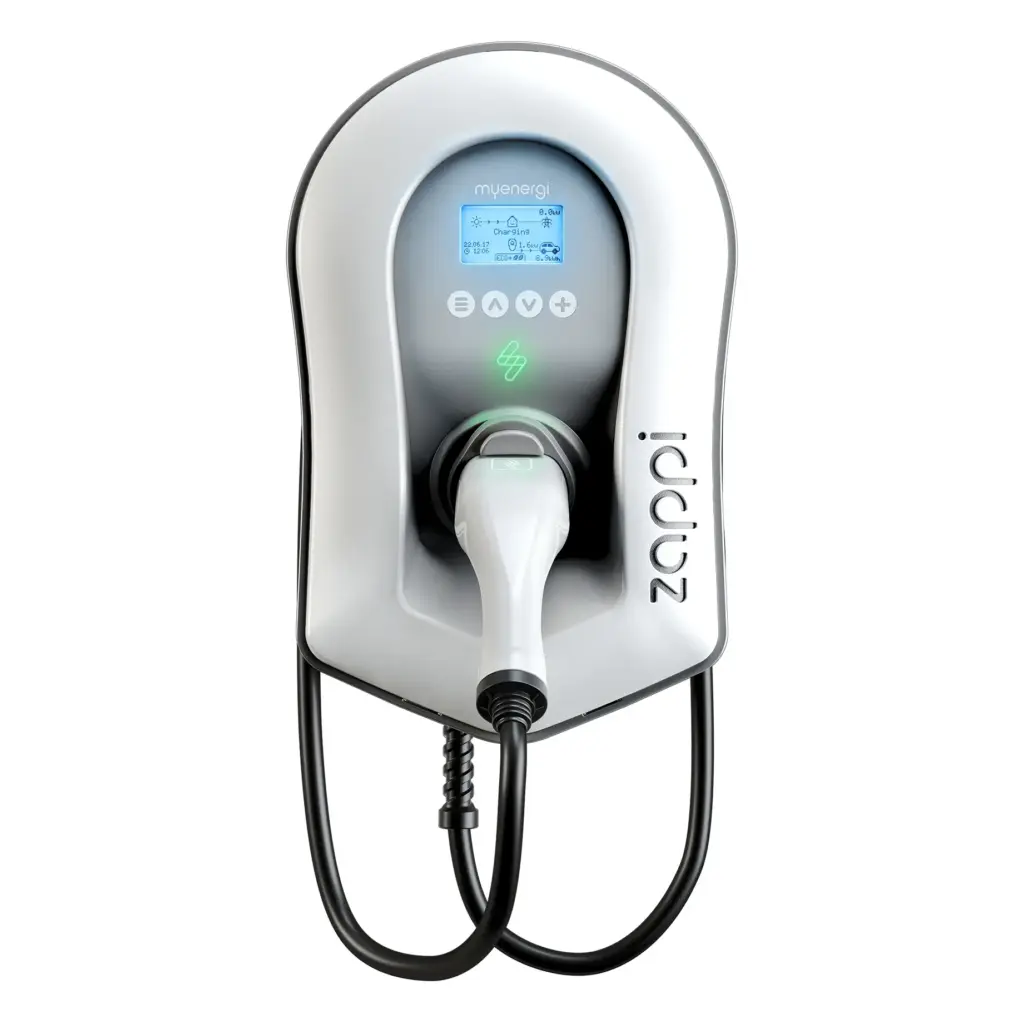As electric vehicles (EVs) become more popular, homeowners are discovering that the key to convenient charging isn’t public stations — it’s having a dedicated EV charger at home. A home charging station provides faster charging, better efficiency, and the convenience of plugging in overnight.
But before you buy a charger and grab your toolbox, it’s important to understand what EV charger installation involves. From costs and equipment types to electrical requirements and professional installation, this guide covers everything you need to know — and why more homeowners are trusting InstallPros to handle the job.

Why Install a Home EV Charger?
Charging an EV with a standard household outlet (Level 1) works, but it’s slow — often requiring 20–40 hours for a full charge. A dedicated Level 2 charger, installed by professionals, can reduce charging time to just 4–8 hours, making it the clear choice for daily use.
Key Benefits of a Home EV Charger:
- Faster charging times (up to 7x quicker than Level 1)
- Convenience of charging overnight
- Increased home value for future resale
- Lower reliance on public charging stations
- Energy savings with smart charging options
Types of EV Chargers
Level 1 Charger
- Uses a standard 120V household outlet.
- Adds 3–5 miles of range per hour.
- Best for occasional drivers or plug-in hybrids.
- No professional installation required, but very slow.
Level 2 Charger
- Requires a 240V outlet or direct wiring.
- Adds 20–60 miles of range per hour.
- Ideal for daily EV drivers.
- Professional installation recommended.
Level 3 (DC Fast Charger)
- Commercial-grade charger, rarely installed at homes.
- Adds 100–250 miles of range in 30 minutes.
- Requires significant electrical upgrades and very high cost.
For most homeowners, a Level 2 charger is the sweet spot between performance and affordability.
What’s Involved in EV Charger Installation?
Installing a Level 2 EV charger is more than just plugging it in. Here’s what the process typically involves:
- Electrical Assessment – A professional evaluates your home’s electrical panel to ensure it can handle the additional load.
- Wiring & Outlet Setup – Installation of a 240V outlet (NEMA 14-50) or direct hardwiring of the charger.
- Mounting the Charger – Secure placement on a wall or pedestal for easy access.
- Permits & Code Compliance – Meeting local building and electrical codes, with inspections if required.
- Testing & Setup – Ensuring proper operation and connecting smart chargers to Wi-Fi or apps if applicable.
Cost of EV Charger Installation
The cost of installation varies depending on your home’s wiring and panel capacity.
Typical Cost Breakdown:
- Charger Unit: $400–$1,200 (brand/model dependent)
- Installation (basic): $500–$1,200
- Panel Upgrade (if needed): $1,000–$3,000
- Average Total Cost: $1,000–$3,500
💡 Pro Tip: Some utility companies and state programs offer rebates and tax incentives for EV charger installation, lowering your total cost.
Why Hire InstallPros for EV Charger Installation?
While some chargers are marketed as DIY-friendly, professional installation ensures safety, compliance, and reliability. At InstallPros, we specialize in EV charger installations and provide:
- Licensed Electricians – Ensuring safe wiring and compliance with local codes.
- Load Calculations – Preventing overloads and ensuring your electrical system is ready.
- Custom Installations – Indoor, outdoor, garage, or pedestal-mounted solutions.
- Smart Charger Setup – Integration with apps, Wi-Fi, and energy-saving schedules.
- Permits & Inspections – We handle all paperwork and approvals.
With InstallPros, your EV charger installation is done right the first time, giving you peace of mind and hassle-free charging at home.
Common EV Charger Installation Scenarios
- Garage Wall Installation
Most common setup, with the charger mounted near the EV parking spot. - Outdoor Installation
Weatherproof chargers can be installed on exterior walls or freestanding pedestals. - Multiple EV Setup
For families with more than one EV, InstallPros can configure dual chargers or load-sharing systems. - Panel Upgrade + Installation
If your electrical panel is outdated, we upgrade it before safely installing the charger.
EV Charger Installation FAQs
1. How long does EV charger installation take?
Most installations take 2–6 hours, depending on wiring and panel upgrades.
2. Can I use a dryer outlet for an EV charger?
Sometimes, but it’s not ideal. Dedicated circuits are recommended for safety and performance.
3. Do I need a permit to install an EV charger?
In most areas, yes. InstallPros handles all permitting and inspections for you.
4. Can InstallPros install Tesla chargers?
Yes. We install Tesla Wall Connectors as well as universal Level 2 chargers from all major brands.
5. Will a Level 2 charger increase my electric bill?
Yes, slightly — but charging at home is still far cheaper than gas and public charging. Many homeowners save by charging during off-peak hours.
Final Thoughts
As EV adoption accelerates, a dedicated home charging station is no longer a luxury — it’s a necessity. A professionally installed EV charger provides faster charging, long-term safety, and the convenience of always starting your day with a full battery.
With InstallPros, you get expert service, licensed electricians, and a seamless installation experience that keeps your EV — and your home — running smoothly.


